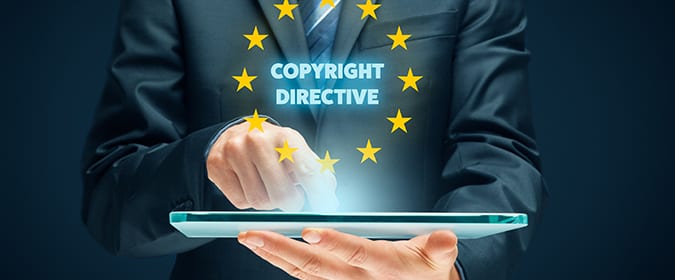
Recently, a public interest group funded by Google by the name of Public Knowledge launched a campaign about the EU’s recently-adopted Copyright Directive, focusing on the Publishers’ Right that creates a European copyright protection for news where none previously existed. Public Knowledge asks Congress to refrain from implementing the Publishers’ Right in the U.S., a copyright protection which is currently guaranteed by Article I, Section 8, Clause 8 of the U.S. Constitution.
Here are the facts:
– While Public Knowledge is asking for the U.S. government to refrain from granting copyright protections to news publications, it is too late. The U.S. Constitution already provides publishers with the fundamental right to independently protect their content – something that the EU previously did not.
– Despite U.S. news publishers’ constitutional right to protect valuable content, U.S. antitrust laws prevent news publishers from collectively asserting that right – in a perverse twist of fate and lack of regulatory evolution, these laws shield Google and Facebook from news publishers. House Antitrust Chairman David Cicilline (D-RI) and Judiciary Ranking Member Doug Collins (R-GA) have introduced the “Journalism Competition and Preservation Act” to right this wrong.
– Public Knowledge, along with Google, falsely asserts that copyright protection of online content is a “link tax,” implying that sharing links will prompt payment. However, the Publisher’s Right is not even close to a link tax for many reasons: it’s not levied by the government, it does not apply to user shared content, it’s voluntary, and – most crucially – it specifically exempts links.
– The current online ecosystem is inequitable, and the Directive aims to remedy that, but the internet “as we know it” isn’t going to change. Most internet users likely won’t even notice the difference, just as they haven’t with music, film, television or any other industry that already enjoys these rights in the U.S. and now, across Europe.
– The Publishers’ Right is not mandatory. Tech companies do not have to pay for content they don’t want, and publishers don’t have to demand payment. It simply levels the playing field and acknowledges ownership of the content to be negotiated for, just like any other right. This exclusive right, granted by the U.S. Constitution, is intended to incentivize investment in the creative process.
– The Spanish and German experiments did not fail. In Germany, the big tech companies are currently challenging the law on procedural grounds. In the meantime, news publishers are accepting inadequate revenue from traffic that translates to pennies on the dollar. In Spain, publisher ad revenues and traffic have largely rebounded following Google’s ill-advised decision to shut down Google News. Similarly, publishers have started licensing their content to other news aggregators, creating competition and varying options for consumers.
– In a turn of events, likely the result of the EU decision, Facebook CEO Mark Zuckerberg spoke to the CEO of one of the largest European publishers, Axel Springer’s Mathias Döpfner, and publicly suggested his willingness to pay news publishers for news content, again demonstrating the reliance of the platforms on valuable news content.
– This isn’t a power grab by the legacy media companies. The Directive protects the sustainability of high-quality journalism in an age when its survival is threatened, mostly helping small local news publishers who do not have the resources or power to protect their interests alone.
